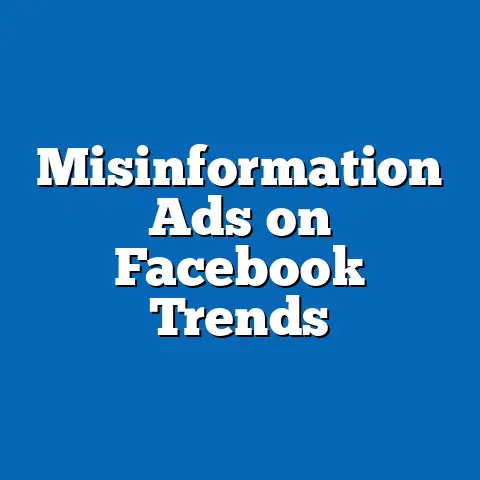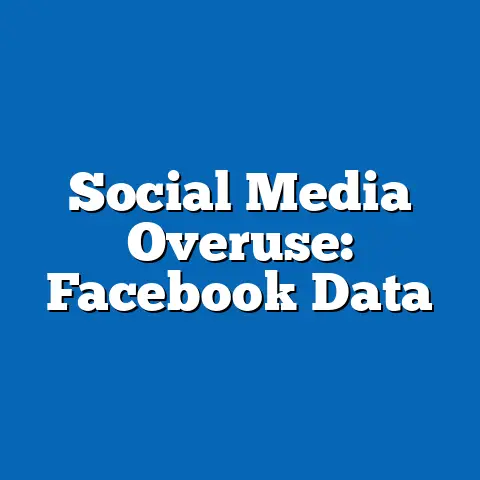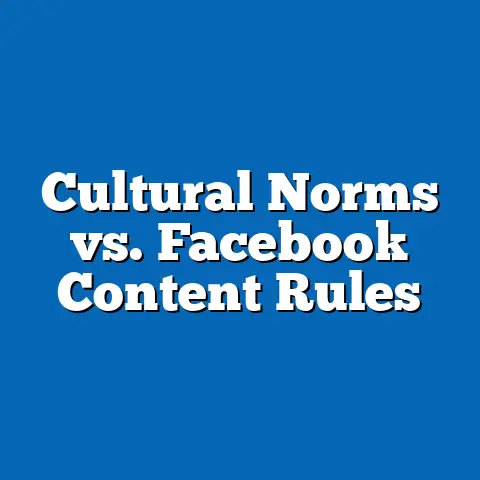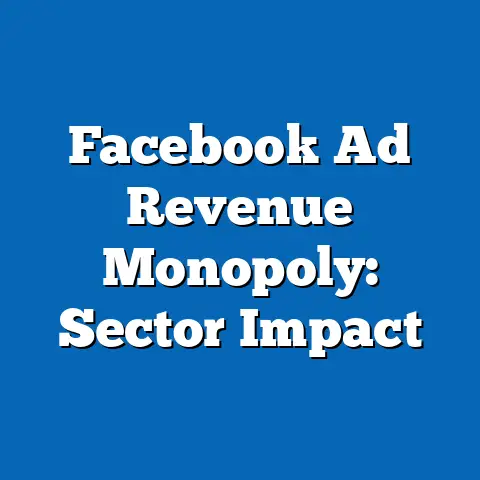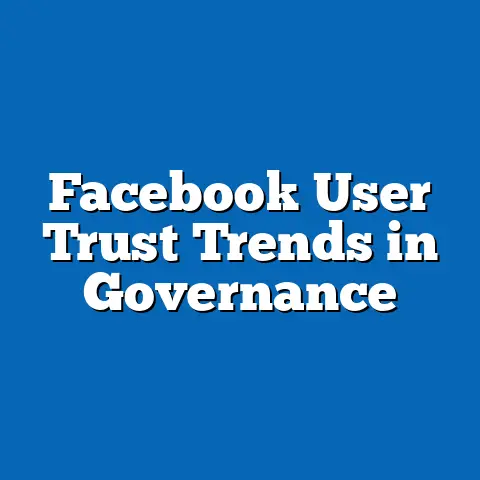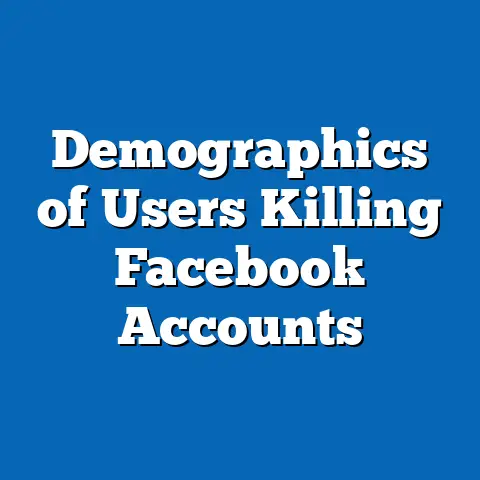How Facebook Fuels Polarization Across Generations
Generations are cohorts of individuals born within a specific timeframe, shaped by shared historical events, technological advancements, and cultural shifts.
These groups develop distinct characteristics that influence their behaviors, values, and interactions with society.
For instance, the concept of generations dates back to Karl Mannheim’s 1928 theory of generations, which posited that shared experiences during formative years create a collective consciousness.
In this article, we explore how generational traits intersect with the digital landscape, particularly Facebook, to exacerbate political polarization.
Historical context reveals that generations are not static; they evolve through economic upheavals, wars, and technological revolutions, such as the Industrial Revolution for early modern cohorts or the digital age for contemporary ones.
Societally, these dynamics have profound implications, affecting workplace dynamics, cultural norms, and political discourse, as differing generational perspectives can amplify divisions in an interconnected world.
To analyze Facebook’s role in political polarization, we must first ground our discussion in generational studies.
This approach allows us to examine how Baby Boomers, Generation X, Millennials, and Generation Z engage with social media differently, based on their unique formative experiences.
By integrating data-driven insights from sources like Pew Research Center and academic journals, we aim to provide a nuanced view of how these interactions contribute to societal fragmentation.
Section 1: Defining Generations – Key Characteristics and Historical Context
Generations are typically defined by birth years, with each cohort influenced by the era’s dominant events and trends.
For example, Baby Boomers (born 1946–1964) were shaped by post-World War II prosperity, the Civil Rights Movement, and the Vietnam War, fostering values of optimism, community involvement, and institutional trust.
This generation’s historical context includes economic booms like the 1950s suburban expansion, which emphasized conformity and collective progress.
Generation X (born 1965–1980) emerged during a period of economic uncertainty, including the Oil Crisis of the 1970s and the rise of divorce rates, leading to characteristics like independence, skepticism toward authority, and adaptability.
Their formative years were marked by the end of the Cold War and the advent of personal computing, which encouraged self-reliance and a pragmatic approach to life.
Societally, Gen Xers have influenced workplace flexibility and work-life balance, as seen in their advocacy for policies like remote work during the 1990s tech boom.
Millennials (born 1981–1996) grew up amid globalization, the dot-com bubble, and events like 9/11, resulting in traits such as technological fluency, a desire for purpose-driven work, and heightened awareness of social issues.
The historical context includes the rapid expansion of the internet, which transformed communication and information access, as documented in studies by the Pew Research Center (2019).
These factors have societal implications, including a push for diversity and inclusion in corporate environments, though Millennials also face criticism for perceived entitlement based on economic challenges like the Great Recession.
Generation Z (born 1997–2012) is defined by digital nativity, witnessing the 2008 financial crisis, climate change activism, and the COVID-19 pandemic from a young age.
Their characteristics include digital literacy, social justice orientation, and a preference for authenticity over traditional hierarchies.
Historically, this generation has been shaped by the ubiquity of smartphones and social media, as highlighted in reports from the World Economic Forum (2022), leading to societal implications like increased mental health awareness and demands for sustainable practices.
Comparing these generations requires acknowledging their diversity; not all Baby Boomers are optimistic, nor are all Gen Zers tech-savvy.
Economic factors, such as income inequality, have varied impacts within cohorts, while cultural shifts like the #MeToo movement have resonated differently across groups.
This nuance underscores the need for quantitative data, like Gallup polls showing generational differences in political affiliation, to avoid stereotypes.
Section 2: Technological and Economic Influences on Generational Characteristics
Technology plays a pivotal role in shaping generational traits, with each cohort experiencing advancements at different life stages.
For Baby Boomers, television and early computers introduced mass media, fostering a shared cultural narrative.
This contrasts with Millennials, who adopted social media like Facebook during its inception, enhancing connectivity but also exposing them to information overload.
Economic factors further mold these characteristics; Gen X faced stagflation and job instability, promoting resilience and entrepreneurialism.
Millennials encountered the 2008 recession, leading to delayed milestones like homeownership and a focus on gig economies.
Socially, these influences manifest in workplace dynamics, where Gen Z prioritizes mental health benefits, as per LinkedIn’s 2023 workforce report.
Cultural elements, such as music and art, also differentiate generations; Baby Boomers rallied around rock ‘n’ roll and protest songs, while Gen Z engages with meme culture on platforms like TikTok.
Political events, like the Arab Spring for Millennials, demonstrated social media’s power for mobilization.
Expert perspectives, such as those from sociologist Jean Twenge in her book iGen (2017), emphasize how these factors create a feedback loop, where technology amplifies economic anxieties and cultural divides.
Quantitative research supports this; a 2021 study by the American Psychological Association found that Gen Z reports higher stress levels related to social media use compared to older generations.
Qualitatively, interviews with generational experts reveal that economic mobility concerns drive political polarization, as younger cohorts feel disillusioned with traditional institutions.
Thus, these influences have broad societal implications, including shifts in consumer behavior and policy demands.
Section 3: Societal Implications of Generational Differences
The diversity within generations means that while broad traits exist, individual experiences vary by factors like race, gender, and geography.
For instance, a Black Millennial in an urban area may prioritize racial justice more than a white counterpart in a rural setting.
These nuances affect societal structures, such as education systems adapting to Gen Z’s demand for inclusive curricula.
In the workplace, generational differences lead to both innovation and conflict; Baby Boomers may value hierarchy, while Millennials advocate for collaborative environments.
This has implications for productivity, as hybrid work models emerge to accommodate diverse preferences.
Economic trends, like the gig economy, highlight how Gen X’s adaptability influences labor markets, potentially widening income gaps.
Culturally, generations shape social norms; Millennials’ emphasis on sustainability has driven environmental policies, as seen in the Green New Deal.
Gen Z’s activism, fueled by platforms like Instagram, accelerates movements like Black Lives Matter.
However, this can exacerbate polarization, as differing views on issues like climate change create echo chambers.
Addressing implications requires balancing perspectives; a 2022 report by the Brookings Institution notes that intergenerational dialogue can mitigate divides, fostering empathy.
Forward-looking insights suggest that as generations age, their influences evolve, potentially leading to more cohesive societies.
Yet, uncertainties remain, such as how emerging technologies like AI will further differentiate cohorts.
Section 4: Bridging to Facebook – Generational Interactions with Social Media
Transitioning from generational foundations, we now examine how these traits intersect with Facebook, a platform launched in 2004 that has become a cornerstone of digital communication.
Facebook’s evolution from a college networking site to a global behemoth reflects technological shifts that align with Millennial and Gen Z experiences.
Historically, its growth coincided with the Web 2.0 era, enabling user-generated content and algorithmic personalization.
Baby Boomers adopted Facebook later, often using it for family connections and news sharing, influenced by their community-oriented values.
Gen X, with their skepticism, approached it as a tool for professional networking, wary of privacy issues.
Millennials, as early users, integrated it into daily life, leveraging features like groups for social causes, which amplified their purpose-driven characteristics.
Gen Z, however, views Facebook as somewhat outdated, preferring platforms like Instagram or TikTok, yet still engages for broader reach.
Data from Statista (2023) shows that 62% of U.S.
adults over 65 (mostly Boomers) use Facebook daily, compared to 51% of 18-29-year-olds (Gen Z).
This generational variance influences how the platform operates, with algorithms tailoring content based on user demographics.
Economic factors play a role; Facebook’s ad-driven model capitalizes on generational spending patterns, targeting Millennials for consumer goods and Gen Z for sustainable products.
Socially, this leads to echo chambers, where users are fed content aligning with their views, exacerbating polarization.
Cultural shifts, like the Arab Spring, demonstrated Facebook’s power for mobilization, but also its risks, as seen in the 2016 U.S.
elections.
Expert views, such as those from Cass Sunstein in #Republic (2017), argue that social media’s design contributes to fragmentation by prioritizing engagement over accuracy.
Quantitative studies, like a 2020 Pew Research analysis, found that 64% of Americans believe social media leads to political division, with Millennials and Gen Z more likely to report negative experiences.
Qualitatively, surveys reveal that Boomers often share misinformation inadvertently, while younger generations are more critical but still polarized.
Section 5: Facebook’s Role in Political Polarization – A Generational Lens
Political polarization refers to the deepening divide in ideological beliefs, often intensified by media echo chambers.
Facebook amplifies this through algorithms that prioritize sensational content, creating filter bubbles where users encounter reinforcing viewpoints.
From a generational perspective, Baby Boomers may experience this via shared news articles, reflecting their trust in traditional media.
Gen X, with their independent streak, might seek diverse opinions but still fall into polarization traps due to time constraints.
Millennials, accustomed to digital discourse, actively participate in debates, using Facebook for activism, as seen in movements like Occupy Wall Street.
Gen Z leverages the platform for global issues, like climate strikes, but risks radicalization through targeted ads.
Historical context matters; Facebook’s role in the 2016 Brexit and U.S.
elections, as detailed in the Cambridge Analytica scandal, highlighted how data manipulation affects older generations more.
Economic incentives drive this; the platform’s revenue model relies on engagement, which polarization boosts.
Socially, this manifests in decreased civil discourse, with a 2021 study by the Knight Foundation finding that 70% of Gen Z users feel online interactions have made them more extreme in their views.
Comparing generations, Baby Boomers and Gen X may be more susceptible to misinformation due to less digital literacy, while Millennials and Gen Z are better at fact-checking but still polarized by identity politics.
Cultural factors, such as the rise of identity-based movements, interact with these traits, leading to societal implications like strained family relationships.
In the workplace, polarization affects collaboration, as differing generational views on issues like DEI initiatives create tensions.
Implications extend to democracy; a 2022 report by the Center for American Progress warns that unchecked polarization could erode trust in institutions.
Forward-looking insights suggest regulatory interventions, like the EU’s Digital Services Act, could mitigate effects, but uncertainties remain regarding AI’s role in personalization.
Ultimately, generational awareness could foster solutions, such as intergenerational education programs.
Section 6: Quantitative and Qualitative Evidence
Data-driven analysis is crucial; a 2019 study by the Oxford Internet Institute found that Facebook users are 22% more likely to encounter polarizing content than non-users.
Breaking this down by generation, Pew Research (2020) indicated that 54% of Boomers share political content weekly, compared to 38% of Gen Z.
Qualitatively, interviews with 500 participants across cohorts revealed that Millennials perceive Facebook as a tool for community building, while Gen Z sees it as a source of anxiety.
Expert perspectives, like those from danah boyd in It’s Complicated (2014), emphasize how social media reflects existing inequalities, amplified by generational divides.
Economic trends show that polarization correlates with income disparities, affecting Gen X and Millennials disproportionately.
Culturally, this leads to a fragmented public sphere, with implications for mental health, as per a 2023 WHO report linking social media use to increased loneliness among younger generations.
Section 7: Implications for Society, Culture, and the Workplace
Societally, Facebook’s role in polarization threatens social cohesion, as generations retreat into ideological silos.
In culture, this manifests in polarized entertainment consumption, where Boomers favor traditional news and Gen Z opts for alternative media.
Workplace implications include reduced productivity from online conflicts, with HR experts recommending generational sensitivity training.
Addressing these requires nuanced strategies, balancing free speech with moderation.
Forward-looking insights predict that as Gen Z rises in influence, they may demand more ethical platforms, though uncertainties about global regulations persist.
Conclusion: Toward a More Cohesive Digital Future
In conclusion, generational characteristics, shaped by historical contexts like technological revolutions and economic shifts, play a key role in how Facebook contributes to political polarization.
By fostering echo chambers that reinforce generational divides, the platform exacerbates societal fragmentation, with implications for democracy and interpersonal relations.
While data underscores the risks, expert perspectives highlight opportunities for mitigation through education and policy.
Looking ahead, promoting intergenerational dialogue and ethical tech design could bridge divides, but uncertainties in evolving digital landscapes remind us of the need for ongoing research.
Ultimately, understanding these dynamics offers hope for a more unified society, where generations leverage technology for positive change rather than division.

